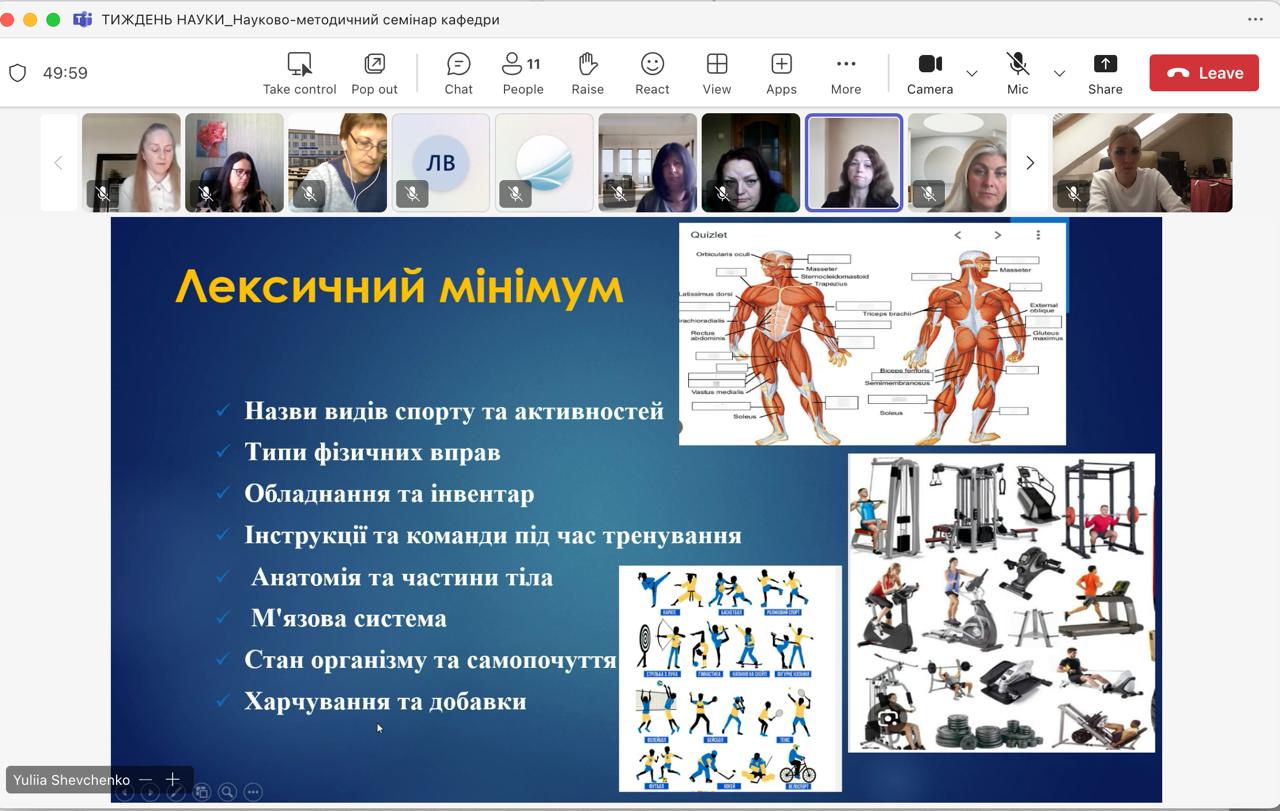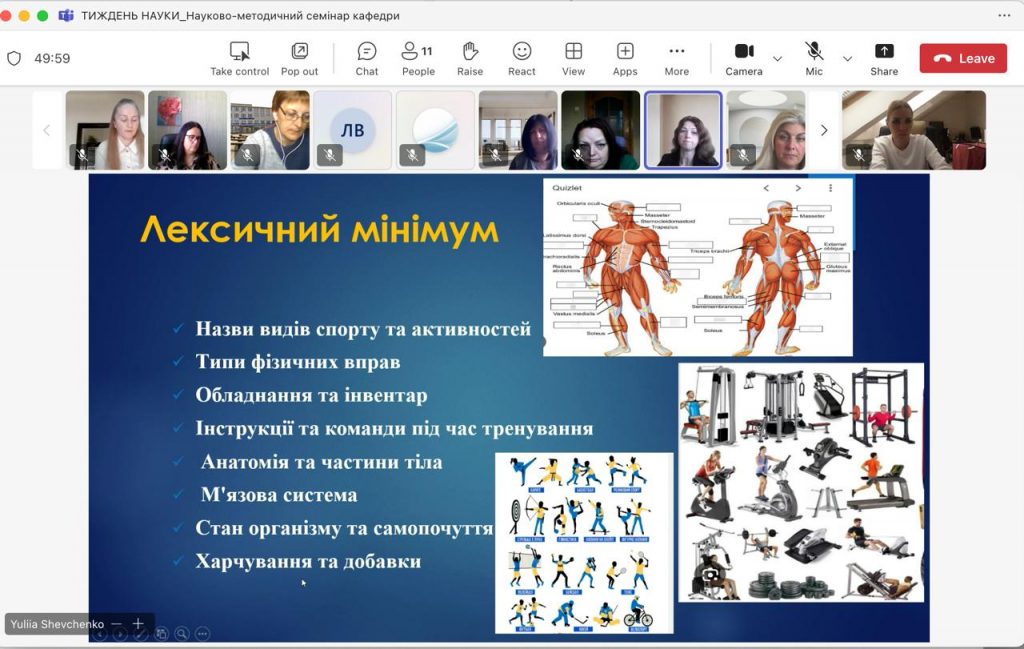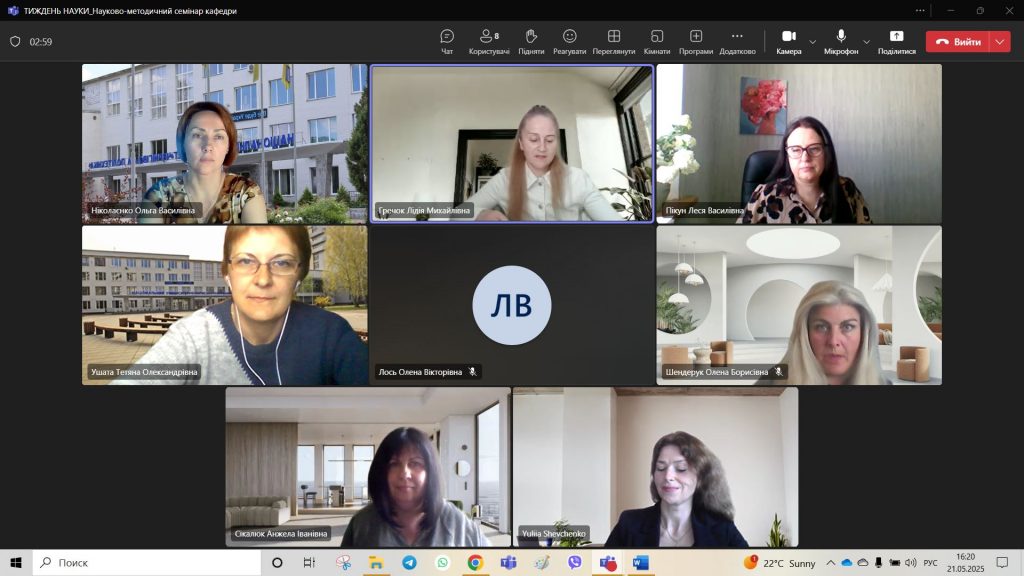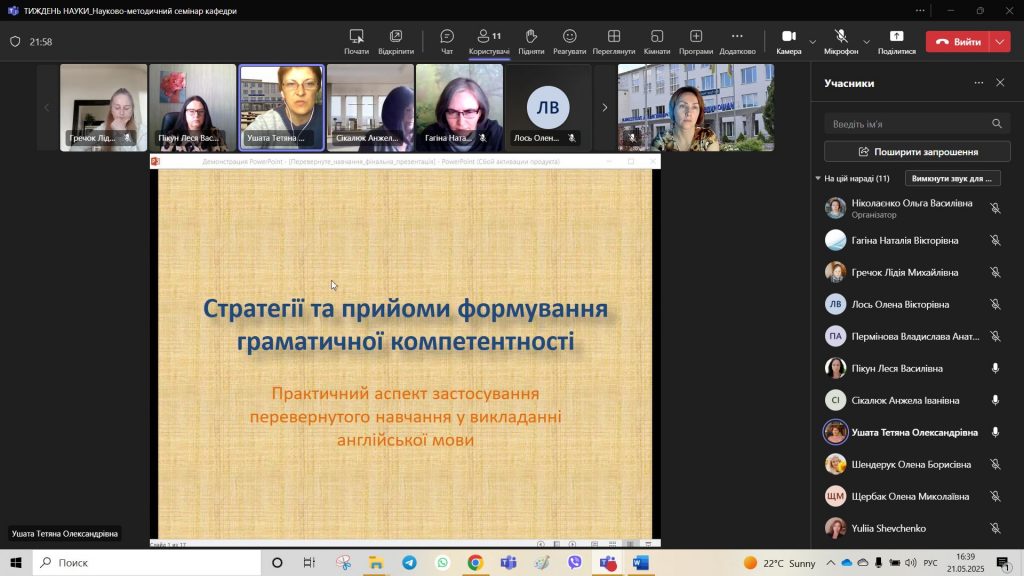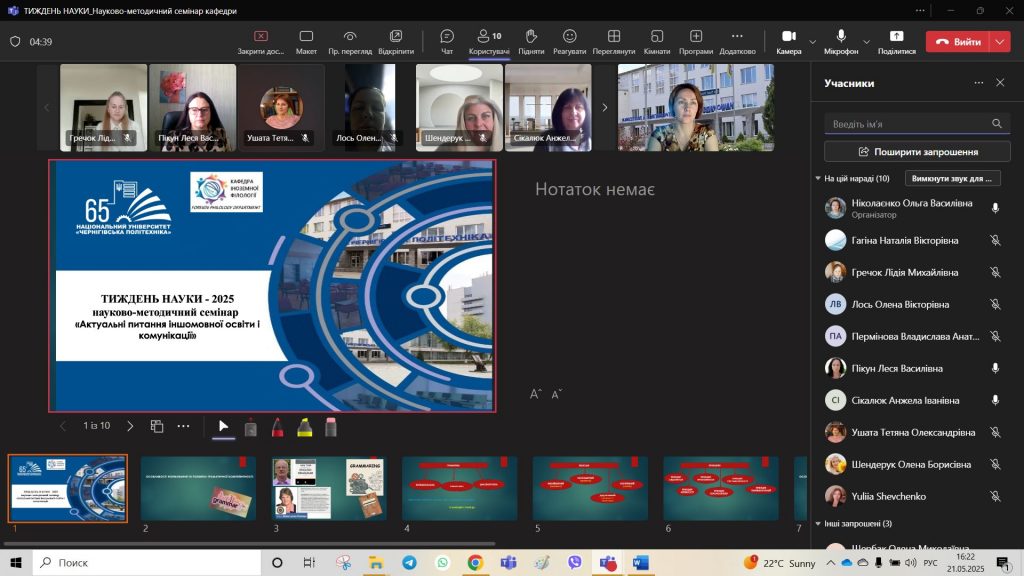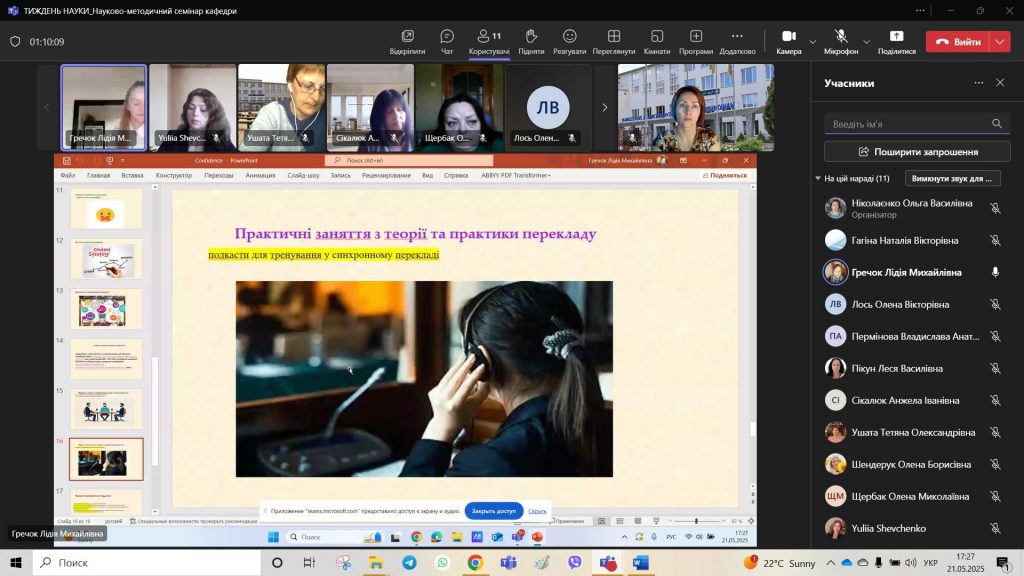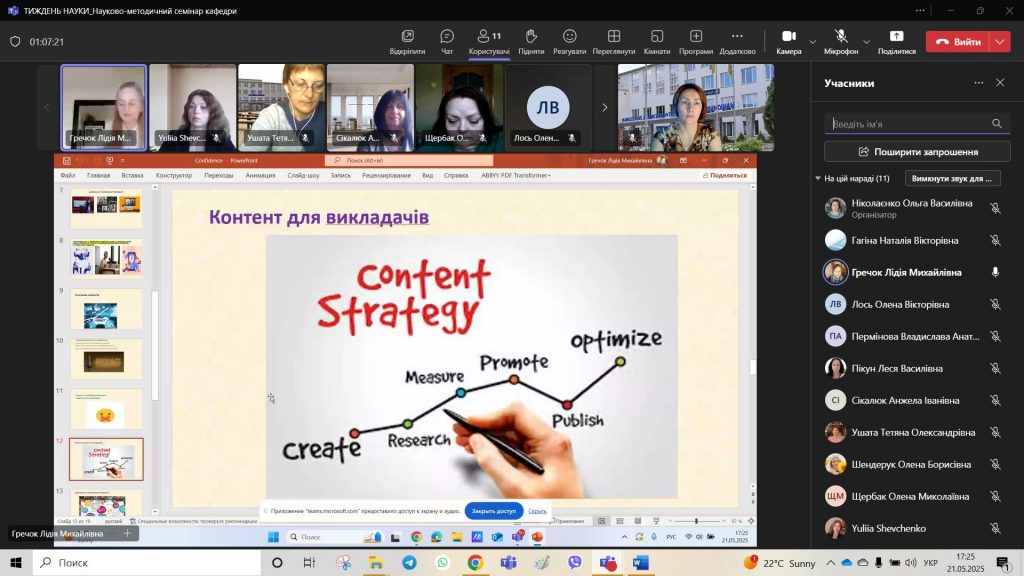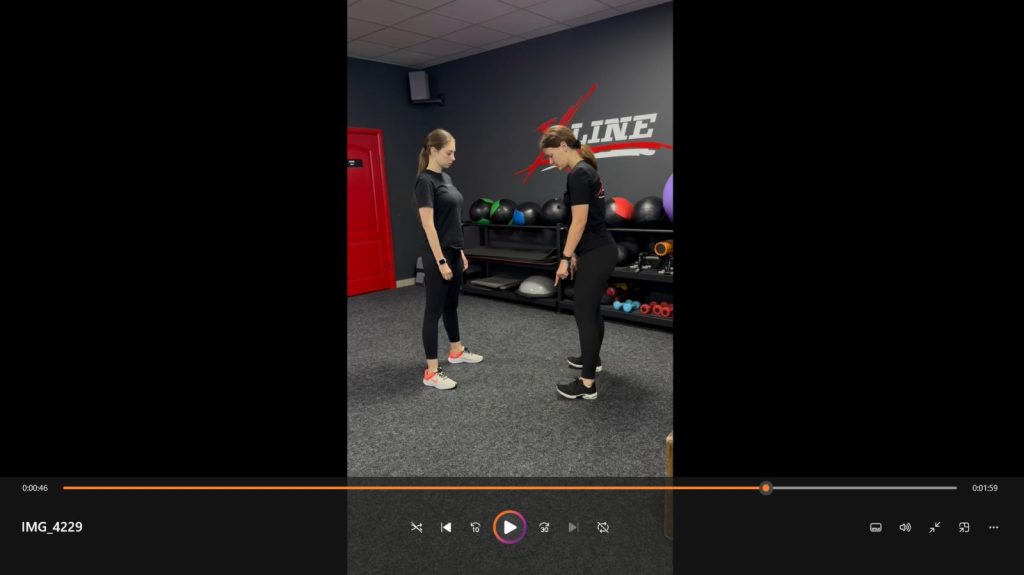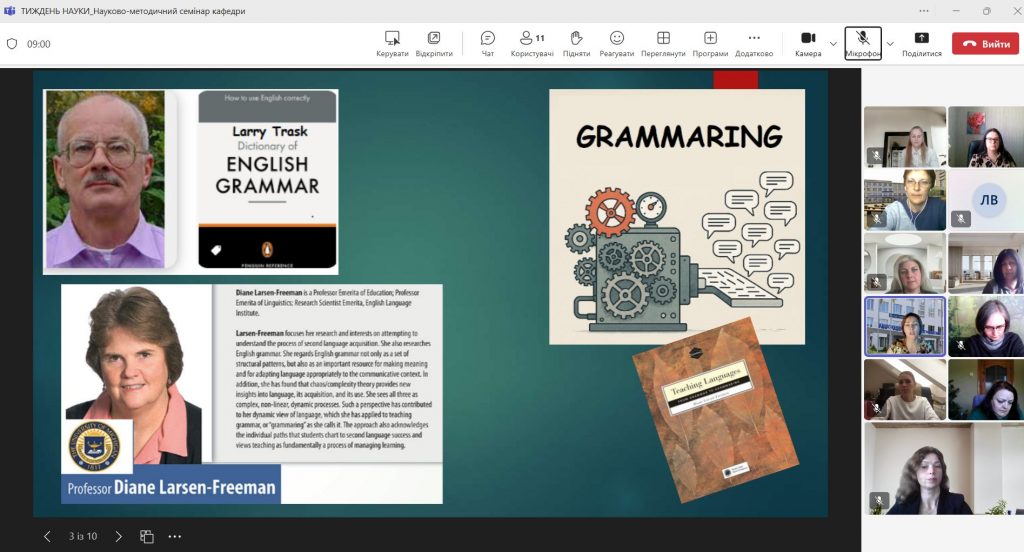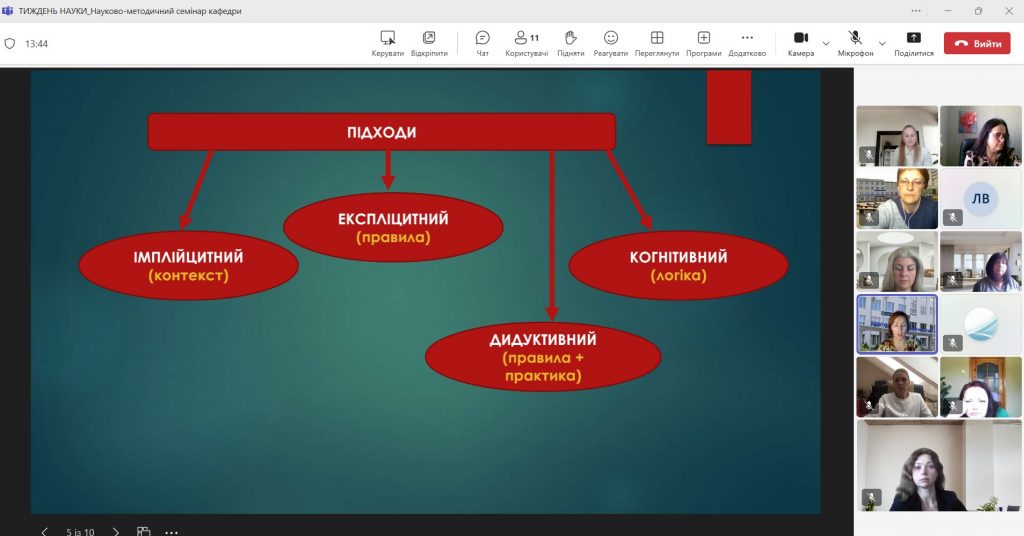INNOVATIONS IN FOREIGN LANGUAGE TEACHING: INSIGHTS FROM THE SCIENTIFIC AND METHODOLOGICAL SEMINAR OF THE DEPARTMENT OF FOREIGN PHILOLOGY DURING SCIENCE WEEK-2025
On May 21, 2025, as part of the University’s 65th Anniversary celebrations and Science Week – 2025, a scientific and methodological seminar was held under the title “Current Issues in Foreign Language Education and Communication.” The event brought together faculty members who shared the results of their academic research and practical advancements in the field.
Olga V. Nikolaienko delivered a presentation entitled “Specifics of the Formation and Development of Grammatical Competence in Higher Education Students (Theoretical Foundations).” Her report emphasized the crucial role of grammatical competence in foreign language acquisition and provided an overview of key grammatical theories and instructional approaches. These included implicit, explicit, deductive, and cognitive methods—each contributing uniquely to the development of linguistic thinking. Effective instruction, she argued, must rest upon didactic principles such as awareness, active engagement, problem-solving, systematic progression, and individualization. The integration of theoretical grammar knowledge with practical application enables students not only to internalize rules but also to use them flexibly and appropriately in communication.
Tetiana O. Ushata, in her talk “Strategies and Techniques for Developing Grammatical Competence,” introduced contemporary teaching methodologies, with particular focus on the flipped classroom model. She also highlighted a range of online grammar tools that enhance individualized learning, learner autonomy, and motivation. In this model, students explore theoretical content independently at home using video lectures, interactive presentations, or grammar platforms (e.g., British Council Learn English, Grammarly, Liveworksheets). Classroom time is then devoted to applying structures in practical contexts. This approach accommodates students’ individual learning paces and preferences while reinforcing grammatical structures through gamified practice and repetition. It is especially effective for mobile learners who benefit from flexible access to materials on any device. Through microtasks, sentence transformation exercises, grammar quests, and collaborative virtual activities, learners not only develop grammatical accuracy but also cultivate self-direction and a deeper engagement with language learning.
Lidiia M. Hrechok addressed the topic “Internet Technologies as a Tool for Developing the Professional Competence of Future Philologists,” underscoring the value of interactive digital environments for fostering both individual and group learning formats, as well as ensuring consistent communication and technical support between instructors and philology students.
Yuliia V. Shevchenko presented on “Peculiarities of Teaching English to Future Specialists in Physical Education and Sports.” Her report showcased highly effective methods and her own teaching strategies tailored to student-athletes. Special emphasis was placed on instructional technologies that simulate authentic communicative situations within the professional field of fitness coaching. She also shared student-produced video recordings demonstrating the execution of exercises accompanied by English-language commentary. The development of such skills, she concluded, significantly contributes to preparing future fitness professionals for effective performance in English-speaking digital environments.
